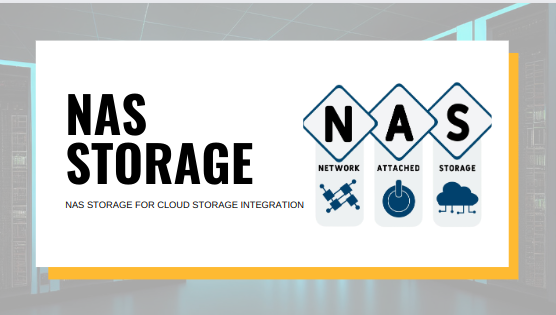As we generate more digital data across different devices, there's an increasing need for reliable and secure storage solutions. One solution that's gained popularity in recent years is Network Attached Storage (NAS). NAS offers a flexible and scalable approach to store, access and share files across different devices and platforms. In this blog post, we'll look at what is network attached storage, how it works, and the benefits it offers.
What is Network Attached Storage (NAS)?
NAS is essentially a specialized file server that connects to a network, enabling it to store and share data over that network. A NAS device connects to a network via Ethernet, which enables it to store and share files across different devices and platforms. NAS solutions can range from small, single-bay setups designed for home use to larger, multi-bay systems designed for larger businesses.
How does Network Attached Storage (NAS) work?
NAS works by using specialized hardware and software that enables it to operate as a file server. A NAS device typically uses a customized version of a Linux or Unix-based operating system designed to provide file-sharing capabilities. Once connected to a network, a NAS device can be accessed by any device on that network, such as laptops, desktops, mobile devices, and even other NAS devices.
What are the Benefits of Network Attached Storage (NAS)?
Centralized Storage: NAS provides a centralized storage solution, meaning that files can be accessed by anyone with permission from anywhere on the network. This means that users can work on files simultaneously from multiple devices without worrying about version control issues.
Scalability: NAS devices typically come with multiple bays, which can be filled with hard drives to increase storage capacity. This makes NAS a scalable solution that can grow with your needs.
Data Protection: NAS devices offer various levels of data protection, such as RAID (redundant array of independent disks), which means that if one drive fails, the data is still protected.
Remote Access: NAS solutions often come with remote access capabilities, meaning that users can access files from anywhere with an internet connection.
Media Streaming: Many NAS solutions come with media server capabilities, enabling them to stream video and audio content to other devices on the network.
Conclusion
In short, Network Attached Storage (NAS) offers a flexible and scalable solution to store, access, and share files across different devices and platforms. NAS devices operate as specialized file servers, with specialized hardware and software that enables them to provide file-sharing capabilities over a network. With the benefits like centralized storage, scalability, data protection, remote access, and media streaming, NAS is an attractive storage solution for both home and business users.
